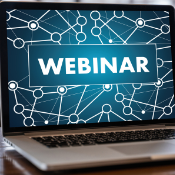Loading Shopping Cart Items...

FREE FOR MEMBERS!
Description: Ever wonder about how the anti-vaxxers got started? Has the credibility of science suffered in the age of "fake news"? Scientific research is in crisis. Researchers are pressured to publish, or perish. Predatory journals will publish anything. The media sensationalize stories in order to boost traffic and sales. How do we cut through the BS (Bad Science) in order to see the real picture? Participants will learn about several types of bias that many studies are prone to, in order to become a more savvy, critical consumer of scientific information. This skill is essential as health professionals and as members of the general public.
Start Date: Upon registration
Completion: Up to 52 weeks
At the end of this webinar you will be able to:
Speakers:
Valentin Villatoro, MEd, BSc (MLS), MLT
Amanda VanSpronsen, MSc, BSc (MLS), MLT
Amanda VanSpronsen is an Associate Professor in MLS at the University of Alberta, and her research interests include MLT professional development and appropriate laboratory utilization. For the past four years, she has facilitated a senior-level course focused on contemporary topics in Medical Laboratory Science, such as patient safety, private/public debates, and the sociology of the healthcare system.
Valentin Villatoro completed his MEd in Health Sciences Education, and has built expertise in online learning platforms, including ways to engage and educate students, healthcare professionals, patients, and the public. He has taken on the role of clinical hematology instructor and clinical coordinator for the MLS program.
Recorded: May 25, 2018
PEP hours: 1.25
CPS credits: 0
*Note: PEP hours and/or CPS credits will only be awarded upon successful completion of the quiz.
Learner Feedback
"The webinar gave specific directions on how to detect bad science as well as outlining reasons that bad science (or sensationalized reporting on any science) occurs."
"[This presentation] is helpful for people to understand how to detect bad science and evaluate media presentations of science in order to reduce the dissemination of misinformation in the world."